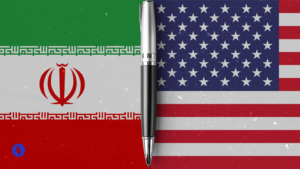The folks at The New York Times dropped an intriguing little nugget over the weekend, reporting they’d received an internal Russian intelligence memo warning that Beijing is a) spying on Russia’s war in Ukraine, b) spying on Russia’s presence in the Arctic, and c) covertly recruiting Russian academics, journalists, researchers, arms-makers, and beyond.
So first… where might this report have come from?
The NYT notes it came from mysterious cybercriminals known as Ares Leaks, but even that leaves us with the question whether Ares in turn got the doc from a hack, a disgruntled Russian, and/or Western spooks (who use both hacks and disgruntled folks).
Stay on top of your world from inside your inbox.
Subscribe for free today and receive way much more insights.
Trusted by 129,000+ subscribers
No spam. No noise. Unsubscribe any time.
The NYT says six Western intelligence agencies validated the memo, but without us knowing the source, it’s still hard to know this leak’s motive, and therefore its significance.
Think about it like this:
- Cybercriminals leak for cash
- A disgruntled insider might leak for a ticket out of Russia
- Western spooks might leak to sow distrust between two rivals (🇨🇳+🇷🇺), and
- Media outlets might publish leaks to drive clicks (plus shine a light in the dark ofc)
So each might have a motive to spice up a memo’s authenticity and significance.
For his part, President Trump has already openly flagged his intent to peel Moscow back away from Beijing: “I’m going to have to un-unite them, and I think I can do that”.
International relations nerds have gone on to describe this as pulling a ‘reverse Nixon’, echoing his ol’ Soviet-era masterstroke of playing one authoritarian off the other, but this time it’d involve: a) letting Russia bank its gains in Ukraine via a favourable ceasefire, then b) rebuilding US ties with Moscow, all so the US can c) pivot hard to counter China.
Anyway, perhaps a more meaningful way to look at all this is to examine this leaked Russian document’s plausibility against what we already know:
- Historically, Beijing-Moscow ties have long featured border clashes and betrayals
- Economically, Russia is now the sanctions-riddled, war-drained junior-burger almost entirely dependent on China’s fuel purchases and industrial capacity, and
- Ideologically, the two neighbours share an interest in wanting to push the world beyond its post-WWII US-led shape.
So against that frenemy backdrop, there’s nothing surprising about Russian spy-catchers fretting about what China might now be up to while Moscow has all its military and intelligence chips stacked 6,500km away in Ukraine.
But at this point, maybe the document’s authenticity is kinda beside the point: first, it’s unclear whether this sino-scepticism is just the view of Russia’s professionally paranoid spy-catchers focussed full-time on China, or a fear widely shared across Moscow.
But second, even that’s beside the point: wary of his Chinese counterpart or not, Putin needs Xi. It’s not that the pros outweigh the cons. Rather, Putin has no choice.
Intrigue’s Take
A spy once told us there’s no such thing as friends in the intelligence world — just shared interests. So this whole story is arguably just another vivid illustration of that.
But we think it’s more:
First, it’s a story about optics. In addition to the optics we’ve explored above, another core component is the optics of Russia’s war against Ukraine. The report notes Beijing’s keen intelligence interest there in learning to counter Ukraine’s Western weapons (given Taiwan also relies on Western arms to defend itself). But there’s a bigger question driving Xi’s thirst for an accurate picture of exactly how Russia is faring:
- Will Putin ride into Kyiv victorious? If so, Xi will want credit for helping usher in a new, post-US world order.
- Or will Putin be pushed back behind his borders then exiled to some lakeside dacha if not handed to The Hague in return for sanctions relief? If so, Xi will want to pretend he was never involved.
Right now, this war is somewhere in that vast, foggy middle, hence Xi’s intelligence focus on the details so he can calibrate his support/risk appetite accordingly. And you can bet Putin knows this, in yet another reason why he continues to project a sense of success even as his casualty numbers burn past a million: if China backs out, he’s screwed.
Second and relatedly, it’s about strategy. If the release of this report was part of any Western strategy to sow discord between two competitors, it’s not enough. In a world increasingly divided into camps (ahem, multipolar world), this Moscow-Beijing ‘no limits’ partnership is less about trust, and more simply about what’s left.
Or to put it another way: this race will ultimately be won not by those who fan the most doubt (despots also try this against the West), but by those who offer the most compelling vision for our world ahead — and that’s the lens through which every foreign capital not only views this NYT report, but each day’s developments in the US and beyond.









